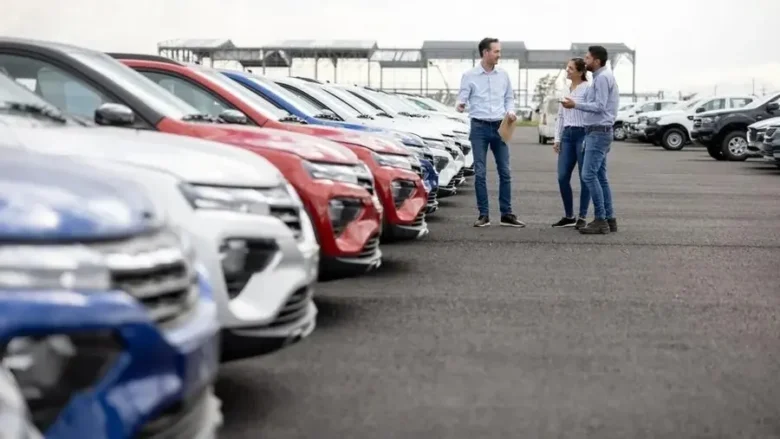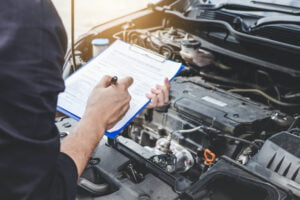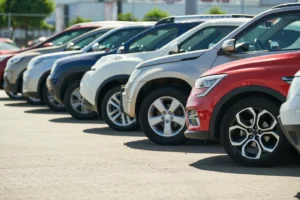We live in a very busy world where having a car is more of a necessity than a pleasure. But there are other factors that go into the choice to buy a car besides the price. People who are watching their budgets need to know how much it will cost to own a used car in 2024. Let’s look at the different things that affect how much it costs to own a used car generally.
Purchase price at the start
When getting a used car, the first big cost to think about is the initial purchase price. The average price of used cars changes a lot in 2024 because of many things. The price you pay depends a lot on the market demand, the state of the car, its age, and its mileage.
The price of a used car can change a lot depending on how much people want it. Prices may go up for certain models that are in high demand, while deals may be better for models that aren’t as popular. The state of the car also has a big effect on its value. Cars that have been well taken care of and have low mileage tend to fetch higher prices than cars that show signs of wear and tear.
Loss of value
To figure out how much something will cost to own in the long run, you need to know about depreciation. Different used cars lose value at different rates, which depend on things like the make and model, age, miles, and market demand. Some cars lose value more quickly than others, but all cars lose value over time. Guessing the selling value can be hard, but it’s necessary for planning your budget for future costs.
Costs of insurance
Car insurance is another regular cost that owners need to plan for. Insurance rates depend on things like the type and make of the car, the driver’s age, where they live, and their driving record. Keeping your driving record clean and getting quotes from more than one insurance company can help you get lower rates.
Fixing and maintaining things
A used car needs to be serviced regularly to keep going well. To avoid expensive fixes down the road, regular services like oil changes, tire rotations, and brake checks are needed. Cars may need new tires, brakes, and batteries after a while because of normal wear and tear. This adds to the cost of ownership. Maintenance that you do yourself can save you money in the long run by keeping you from having to pay for big fixes.
How Well Fuel Works
Fuel economy is a big part of how much it costs to own a car. Vehicles with better fuel economy use less gas, which means that fuel costs are lower. Fuel efficiency depends on things like the type of car, its size, and how you drive. You can save money on gas by choosing a fuel-efficient car and driving in an environmentally-friendly way.
Taxes and Fees to Register
The costs of owning a car, like taxes and licensing fees, can’t be avoided. In many states, these fees are based on how much the car is worth and how old it is. Finding out about state rules and local tax laws can help you get a good idea of these costs. To avoid shocks during the buying process, it is important to plan ahead for taxes and registration fees.
Getting a loan or financing
A lot of people who buy used cars choose to finance their purchase. Interest rates and loan terms change based on things like your credit score and the amount of your down payment. You can save a lot of money by comparing loan offers from different lenders and getting good terms.
Costs added on
Besides the costs listed above, owners may also have to pay for other things related to having a car. Extra costs to think about include parking fees, tolls, customization, and longer guarantees. Setting aside money for these extras now can help you escape money problems later on.
Seeing how much it costs to own a new or used car
When choosing between getting a new or used car, it’s important to think about the pros and cons of each. New cars may have the newest features and come with longer warranties, but used cars are often a better deal in terms of how much they cost up front and how much they lose value over time. It can help you make a smart choice if you carefully consider the total cost of ownership.
A Guide to Lowering the Costs of Owning a Home
To keep ownership costs as low as possible, you might want to try the following:
Care and maintenance on a regular basis: Doing maintenance on time will keep you from having to pay a lot for fixes.
Planning for Costs You Didn’t Expect: Save money for repairs or situations that come up out of the blue.
In conclusion
In 2024, there are costs that go along with owning a used car besides the initial buy price. To stay financially stable, you need to know about these costs and plan for them in your budget. People can make smart choices about cars and enjoy the benefits of owning one without going broke by looking at things like depreciation, insurance, repair, and how well the car uses gas.
FAQs
Does it cost more to cover used cars?
Insurance rates for used cars can change based on things like the make and type of the car, the driver’s age, where they live, and their driving record. Even though insurance rates for used cars may be cheaper than rates for new cars, rates can still change for many reasons.
How can I work out how much a used car has lost in value?
To figure out how much a used car will lose in value over time, you have to look at its make and model, its age, its miles, and the demand in the market. Using past data and market trends, online tools and resources can help you figure out how much a home is worth again.
How can I pay for my used car? What financing choices are there?
You can finance used cars through bank loans, credit union loans, or loans from the seller. Buyers can look at what different lenders have to offer and compare them to find the best deals and interest rates.
Should I take better care of my used car than my new one?
If a used car has a lot of miles on it or other signs of wear and tear, it may need repair more often than a new one. Regular maintenance, on the other hand, can help you avoid big repairs and make the car last longer.
How can I get my used car to use less gas?
Using eco-friendly driving habits like keeping your speed steady, not speeding up or slowing down quickly, and making sure your tires are properly filled can help a used car use less gas and save money on gas costs.




